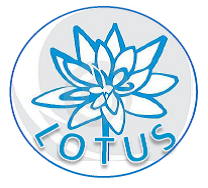
The LOTUS Trial is currently closed to recruitment.
LOTUS trial summary
A high quality randomised controlled trial, with economic evaluation, is clearly needed to address these questions. However, before embarking on a large scale project, we aim to perform a feasibility study that addresses the acceptability of the intervention and information provided to women, the feasibility of recruiting and randomizing women in a timely fashion, the compliance with the treatment schedule, the usability of the data collection forms and limited data on the proposed primary outcome measure.
Background
To date, there has been no robust data on the benefits of pre and postoperative oestrogen treatment in postmenopausal women undergoing POP surgery. A Cochrane review published in 2010 did not find any clear evidence to suggest whether oestrogens help in reducing the symptoms of POP. However due to frequent use, it was recommended that adequately powered RCTs with long term follow up is needed to identify benefits or risks. We have done an up to date search and there have been no trials published or registered till December 2014. Highlighting this lack of evidence, we performed a survey of the British Society of Urogynaecology BSUG membership in April 2013 and noted that whilst 87% of the clinicians who returned the questionnaires (23% response rate) believed that postmenopausal women undergoing prolapse surgery would benefit from the use of low dose oestrogens, only 44% of the clinicians (out of the 39/89 respondents) recommend use of local oestrogen preoperatively before POP surgery (and not postoperatively regularly) (BSUG), The reason behind this discrepancy may be the lack of conclusive evidence to support the change in clinical practice to use low dose oestrogens or the uncertainty regarding the potential adverse effects of this therapy. Encouragingly, 77%(69/89) of the respondents were willing to recruit patients into the trial to study the effectiveness of this intervention.
Whilst there is a plausible argument for using low-dose oestrogen to improve the vaginal environment and reduce UTIs at the time of prolapse surgery, there is little evidence to support its effect on the quality of surgical repair, prolapse cure rates or recurrence. Furthermore, there is no information about any effect in terms of prolapse related symptoms, overall quality of life and outcomes important to the women. Finally, the duration of oestrogen treatment, and cost-effectiveness compared with current practice are not known.
For further details on the study please see our LOTUS News page or Contact us.
.